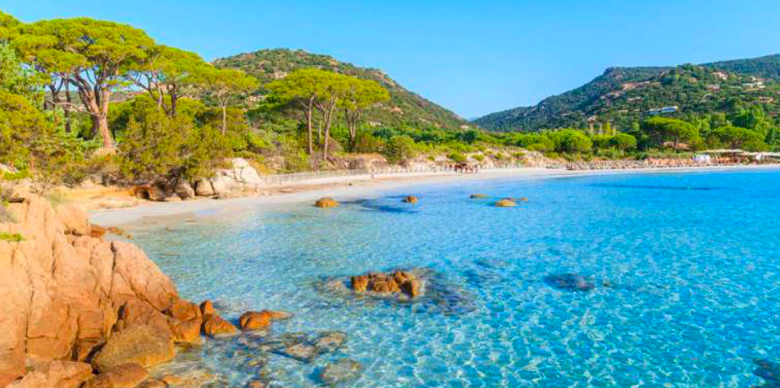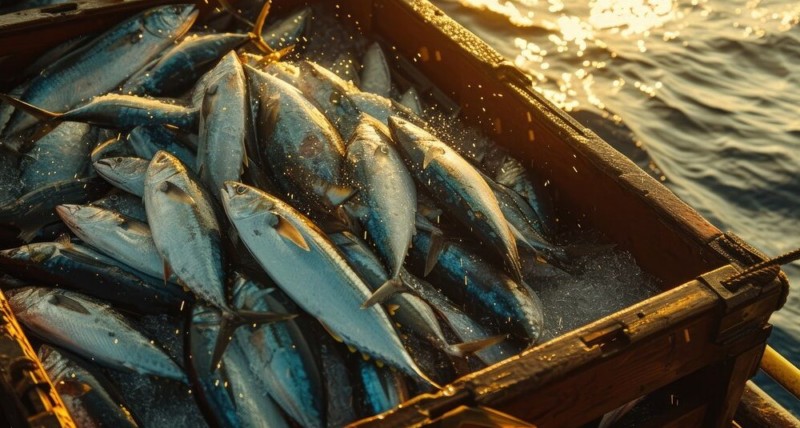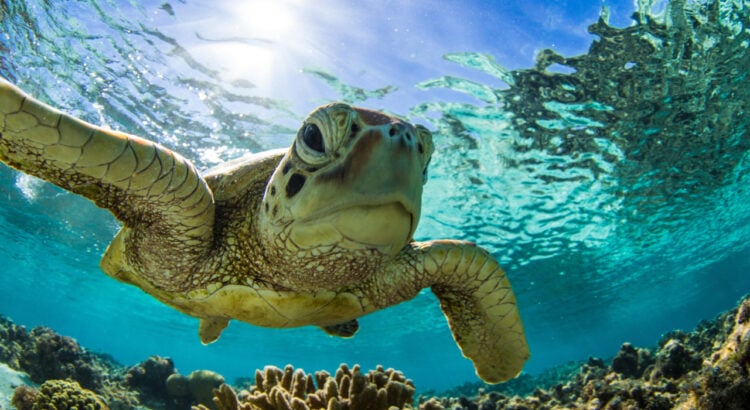The General Fisheries Commission for the Mediterranean launches a ten-year action plan to reconcile fishing and the protection of vulnerable species in the Mediterranean and Black Sea. In the face of threats to marine biodiversity, the initiative aims to reduce bycatch and depredation.

The Mediterranean and Black Sea are hotspots of global marine biodiversity. These waters host a wide variety of species, many of which are endemic, rare, or vulnerable. Among them are marine mammals, sea turtles, seabirds, and various species of sharks and rays. These species play an important ecological role in aquatic ecosystems.
However, this unique marine environment faces numerous threats. Climate change, pollution, habitat degradation, and the introduction of non-native species endanger the health of these ecosystems.
In addition to these challenges, problematic interactions between fishing activities and vulnerable species have detrimental consequences for both marine fauna and fishermen. Bycatch of vulnerable species in fishing gear is common. These incidents can cause severe, even fatal, injuries to animals.
Moreover, species such as dolphins, monk seals, and sharks may take fish caught in nets or lines, a phenomenon known as depredation. This situation results in significant economic losses for fishermen and can damage their equipment.
An initiative to reconcile fishing and species protection
To address these issues, the General Fisheries Commission for the Mediterranean (GFCM) of the United Nations Food and Agriculture Organization (FAO) has launched an ambitious initiative. The Regional Action Plan to monitor and mitigate interactions between fisheries and vulnerable species in the Mediterranean and Black Sea has been established for ten years. This plan is part of the GFCM’s 2030 Strategy and has two main objectives: reducing bycatch of vulnerable species and minimizing dolphin depredation.
Paolo Carpentieri, in charge of fisheries resource monitoring at the GFCM, emphasizes the importance of this balance, « for fisheries to be productive, the seas must be healthy, and one of the main pillars of the GFCM’s activities is to ensure that fisheries do not have a major detrimental effect on the marine environment, » he stated. To achieve these goals, the GFCM assists member countries in collecting and assessing necessary information. Standardized protocols have been established, detailed in guides on monitoring bycatch and depredation. This approach aims to facilitate the setting of priorities and the effective implementation of management measures.
Innovative pilot projects across the Mediterranean
The GFCM has launched five pilot projects in different sub-regions of the Mediterranean, in collaboration with various partners. These initiatives aim to strengthen bycatch monitoring programs and test mitigation measures to reduce problematic interactions.
In Spain, in the Balearic Islands, BirdLife International is working on mitigating the impacts of bottom longline fishing on seabirds, particularly endangered shearwaters.
In Morocco, the National Institute for Fisheries Research and ACCOBAMS (Agreement on the Conservation of Cetaceans of the Black Sea, Mediterranean Sea, and contiguous Atlantic area) are focusing on reducing bycatch of sharks and rays in trawls, as well as limiting dolphin depredation in purse seines.
In Sicily, ACCOBAMS and Marecamp seek to reduce dolphin depredation in artisanal fisheries. In Turkey, a project aims to decrease bycatch of various vulnerable species in trawls in the northern Levantine Sea.
Finally, in the Adriatic Sea, WWF-Adria and the Croatian Institute of Oceanography and Fisheries are collaborating to reduce shark and ray bycatch in gillnets and combined nets. These pilot projects, expected to be completed by 2025, will provide data for the development of future GFCM management plans.
Effective measures will be integrated, knowledge synthesized, and awareness campaigns and training programs will be enhanced.
Particular focus on the Black Sea
In the Black Sea, the CetaByM project focuses specifically on assessing and reducing bycatch of cetaceans in gillnets used for turbot fishing. This species, highly prized in the Black Sea, is primarily caught using gillnets that pose a danger to the common porpoise, one of the three dolphin species in the region.
Hüseyin Özbilgin, coordinator of the BlackSea4Fish program, explains the issue. « With the high mortality rate of the common porpoise, we are testing different measures to reduce bycatch, while ensuring that turbot fishing can continue sustainably in the long term. »
These initiatives in the Mediterranean and Black Sea are supported by numerous countries and donors, including the European Union, the Global Environment Facility, and Spain.
Source: Les éco



